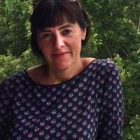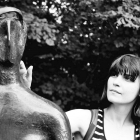The term ‘environmental humanities’ designates an interdisciplinary area of research drawing on many disciplines including philosophy, literature, cultural geography, anthropology, history, art history, visual studies, linguistics, gender studies and political ecology.
Environmental humanities scholars are interested in rethinking the links between human beings and their environment, between nature and culture, as well as in bridging the gap between the sciences and humanities.
The field started developing with the growing awareness of the challenges presented by the climate crisis, which brought about a crisis in modern thought presenting many epistemological, political and social implications. Scholars in Environmental humanities are interested in rethinking the role of Humanities and human sciences in our era of climate change, which is that of the Sixth Mass Extinction, the Anthropocene and the Capitalocene.
Environmental humanities formally emerged as a research field in the Anglophone world in the 2000s. However, the movement started earlier in the 1970s and 1980s with the development of ecocriticism, ecopoetics, ecofeminism, environmental philosophy, environmental history, geocriticism and geopoetics.
What was at first a very Anglocentric field opened up considerably in the 1990s as Ecocriticism expanded to include postcolonial and decolonial studies, the spatial and global turn, posthumanism(s), animal studies, plant humanities and queer ecology. However, despite the huge influence of French theory on the field (Guattari, Deleuze, Latour, Serres), environmental humanities are only starting to gather pace in France.
The idea of this research group is to create a space of exchange and interdisciplinary dialogue which will be part of a national and international network of scholars working on the subject. This cross-axis also aims at making the environmental work of LARCA members more visible, since environmental preoccupations already underpins the work of many of our researchers in fields such as literature, history, postcolonial studies, gender studies, visual studies or linguistics. It will showcase and highlight the diversity of approaches used to think about the relationship between humans and the environment.
Related Cross-Axis :
Team:
Pr. Cécile Roudeau
Professor of American literature
Head of LARCA UMR 8225
Head editor of Transatlantica: American Studies Journal (literature and arts)
mail : cecile.roudeau[at]gmail.com
 Laura Ouillon
Laura Ouillon
PhD Student in British Visual Culture,
LARCA, Université de Paris
mail : laura.ouillon[at]u-paris.fr
 Dr. Estelle Murail
Dr. Estelle Murail
Lecturer in British Literature at the Catholic University of Paris and Associate researcher at the LARCA, University of Paris.
mail e.murail[at]icp.fr

